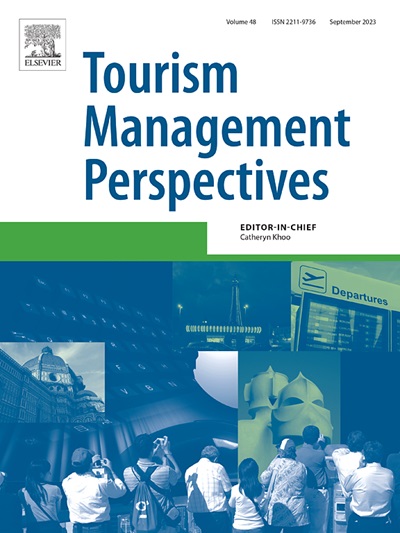天气和空气质量对出行行为的影响
IF 6.9
2区 管理学
Q1 HOSPITALITY, LEISURE, SPORT & TOURISM
引用次数: 0
摘要
本研究考察了天气和空气质量对济州岛游客运动的影响,强调了环境因素在目的地选择中的作用。利用多数据源和空间德宾模型(SDM),分析了环境条件与旅行行为之间的时空关系。结果表明,平均气温和风速对游客运动有正向影响,而降水和PM2.5对游客运动无显著影响。然而,PM10会对旅游行为产生负面影响,这表明由于感知到健康风险,可见污染物会阻止游客。该研究还发现了空间溢出效应,即游客更喜欢环境条件较好的地区,从而减少了对邻近空气质量较差地区的游客。这些发现强调了将环境数据纳入旅游规划的重要性。通过展示环境因素如何影响游客的决策,本研究为目的地管理提供了实用的见解,并有助于制定可持续的旅游战略。本文章由计算机程序翻译,如有差异,请以英文原文为准。
Effects of Weather and air quality on travel behavior
This study examines the impact of weather and air quality on tourist movement in Jeju Island, emphasizing the role of environmental factors in destination choice. Using multiple data sources and the Spatial Durbin Model (SDM), the analysis explores spatial-temporal relationships between environmental conditions and travel behavior. Results indicate that average temperature and wind speed positively influence tourist movement, while precipitation and PM2.5 have no significant effects. However, PM10 negatively affects travel behavior, suggesting that visible pollutants deter tourists due to perceived health risks. The study also identifies spatial spillover effects, where tourists favor areas with better environmental conditions, reducing visitation to adjacent regions with poorer air quality. These findings underscore the importance of integrating environmental data into tourism planning. By demonstrating how environmental factors shape tourist decisions, this research provides practical insights for destination management and contributes to sustainable tourism strategies.
求助全文
通过发布文献求助,成功后即可免费获取论文全文。
去求助
来源期刊

Tourism Management Perspectives
Multiple-
CiteScore
15.60
自引率
3.40%
发文量
99
审稿时长
59 days
期刊介绍:
Tourism Management Perspectives is an interdisciplinary journal that focuses on the planning and management of travel and tourism. It covers topics such as tourist experiences, their consequences for communities, economies, and environments, the creation of image, the shaping of tourist experiences and perceptions, and the management of tourist organizations and destinations. The journal's editorial board consists of experienced international professionals and it shares the board with Tourism Management. The journal covers socio-cultural, technological, planning, and policy aspects of international, national, and regional tourism, as well as specific management studies. It encourages papers that introduce new research methods and critique existing ones in the context of tourism research. The journal publishes empirical research articles and high-quality review articles on important topics and emerging themes that enhance the theoretical and conceptual understanding of key areas within travel and tourism management.
 求助内容:
求助内容: 应助结果提醒方式:
应助结果提醒方式:


